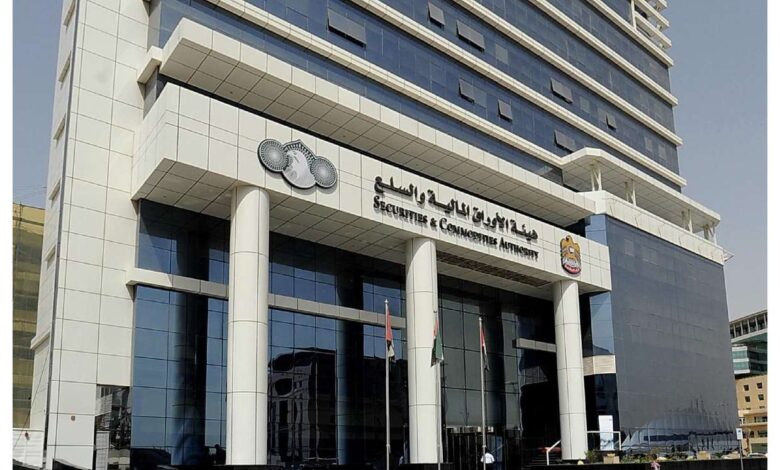UAE’s SCA Opens Consultation on Fractionalized Bonds & Sukuk to Broaden Market Access

The UAE Securities and Commodities Authority (SCA) is seeking public feedback on a proposed amendment to its Rulebook that would formally permit the sale and purchase of fractionalized bonds and sukuk.
Released on 4 June 2025, the public consultation marks a pivotal step in the country’s drive to enhance retail and digital investor access to financial markets. If enacted, the regulation would give financial product dealers a framework to conduct these fractional transactions—laying the groundwork for broader inclusion and innovation in the UAE’s capital markets.
This move aligns with the UAE’s broader strategy to modernize financial regulation, particularly around tokenized assets, fintech platforms, and digital financial products.
Key Provisions of the Proposed Amendment
The proposed clause would be added to Article (2) of Section 3 (Business Conduct) and outlines key requirements for financial product dealers facilitating fractionalized bond/sukuk transactions. These include:
The new clause would be added to Article (2) of Section 3 (Business Conduct) and outlines key responsibilities for financial product dealers facilitating fractionalized bond or sukuk transactions. These include:
- Execution of written agreements with investors, covering the sales mechanism, investor classification, rights and fees, pricing methodology, exit strategy, and risk disclosures.
- Notification requirements for material changes to the structure, issuer, or terms of the underlying bond/sukuk.
- Compliance with applicable AML/CFT, conflict of interest, and investor protection obligations.
- SCA’s discretionary power to suspend dealings in fractional instruments where deemed necessary to protect investor interests.
Initial Analysis and Key Issues for Industry Consideration
A preliminary review of the proposal, benchmarked against international practices in tokenized or fractional fixed-income products, highlights several technical issues that merit further consideration.
1. Legal Nature of the Fractional Interest
The proposed framework does not clarify whether the fractional interest constitutes a contractual entitlement, a beneficial interest held via trust, or a tokenized security. This has significant implications for enforceability, bankruptcy remoteness, and investor rights.
In the UK, platforms such as WiseAlpha operate via trust structures that hold the underlying bonds on behalf of fractional investors. In the US, platforms like Securitize issue tokenized notes governed under Reg D or Reg A+ exemptions, where the legal form is clearly defined.
2. Licensing Scope and Platform Eligibility
The draft does not specify which categories of regulated entities may facilitate fractionalized offerings. It is unclear whether Virtual Asset Platform Operators (VAPOs) licensed under other regimes would qualify, nor whether cross-border licensed platforms may participate.
In Singapore, tokenized bonds may be distributed by Recognised Market Operators (RMOs) or exempted issuers under the Securities and Futures Act, with clear demarcations for investor suitability and licensing tiers.
3. Custody, Safekeeping, and Reconciliation
The proposal is silent on how fractional interests should be held, safeguarded, and reconciled. Most international frameworks require either:
- A licensed custodian to hold the underlying assets;
- A DLT-based registry that ensures provable, immutable investor records, or
- A trustee model acting on behalf of investors.
Malaysia’s SC and Bahrain’s CBB both require custodial oversight and/or trustee intermediation in similar products.
4. Capital Adequacy Requirements
Where fractional sales are paired with market-making functions, redemption guarantees, or liquidity facilities, the issuer or operator assumes counterparty risk. Internationally, this is addressed through:
- Capital adequacy requirements (e.g., MAS bond trading platforms in Singapore);
- Clear limitations on the promises operators may make to investors.
5. Shari’ah Governance for Sukuk
While the underlying sukuk may have been certified as Shari’ah-compliant, the fractionalization structure — especially if delivered via SPV, token, or custodial note — introduces new legal and commercial characteristics.
Under AAOIFI Shari’ah Standard No. 17 (Investment Sukuk), any change to ownership structure or transfer mechanism may necessitate a new fatwa.
Malaysia’s Shari’ah Advisory Council (SAC) mandates separate approvals for sukuk crowdfunding platforms, even where the underlying instruments are certified.
6. Rulebook Integration and Cross-Sectional Reform
The proposed amendment sits solely within the Business Conduct section. To ensure regulatory coherence, corresponding updates may be required in:
- Section 1 – General Provisions (definitions of fractionalized instruments),
- Section 2 – Licensing (eligibility of operators),
- Section 4 – Capital Adequacy (platform solvency where risks are assumed),
- Section 6 – AML Guidelines (to address traceability and micro-structuring risks).
Next Steps
The consultation represents a promising step forward in enabling more inclusive, tech-forward access to capital markets in the UAE. However, for the regime to be effective and protective of investors, additional clarifications around legal structure, platform eligibility, custody, and Shari’ah oversight will be critical.
Industry stakeholders have until June 19, 2025 to submit feedback to the SCA. Platform operators, broker-dealers, issuers, fintech founders, and Shari’ah scholars are encouraged to contribute feedback during the public consultation period to help shape a well-calibrated, future-ready framework.




